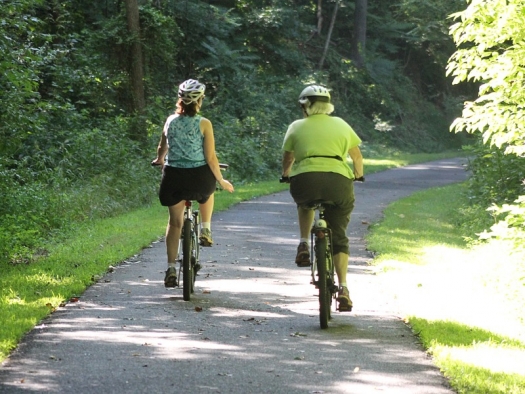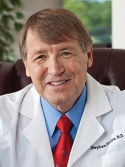No matter how old you are, put more quality in your life and increase your longevity potential with this handful of "do's and don'ts."
During my thirty-plus years in active practice, I repeatedly encountered misguided, procrastinating patients who struggled with change and advice. They would twist, ignore, or minimize my "inconvenient" recommendations to fit their own habit patterns.
All doctors, of course, are challenged by non-compliant patients. However, non-compliance can be very detrimental and even lethal in cardiology. I spent a lot of time trying to redirect patients back to a healing path who kept going off the tracks. I wasn't always successful.
In this article I share with you ten of the most common patient errors or side-steps that I saw in practice.
1. The vitamin "security blanket"
A lot of people think they can eat anything they want as long as they take their supplements. One patient stands out in my mind. He was a middle-aged professional man who came to see me just before going on a cruise.
"Hey doc," he said, "now that I'm taking your CoQ10 and other vitamins I guess it's OK for me to eat anything I want, right?"
Absolutely not, I told him.
And, like many others like him, I gave him the following advice.
No, it's not OK to wolf down sweets, fried food, and junk food willy-nilly and think you are protected just because you also take vitamins. Yes, supplements are protective but not a license for eating poorly and certainly not a license for overeating. You can easily overwhelm their positive effect.
2. The low-fat trap
Lurking behind the labels of those so-called healthy low-fat foods are often sugar, high-fructose corn syrup, and other unneeded sweeteners. Yes, you get less fat but instead you get more sweets, calories, and an insulin response. You don't want that for sure.
A classic example is the organic fruit-flavored low-fat or no-fat yogurt. I always reminded patients to opt for the plain yogurt, and be sure to read labels.
Many patients on a low-fat diet told are puzzled by the fact that they still gain weight. They unwittingly replace sugar for fat, and the body responds by storing the excess calories as fat.
3. Going up in smoke
Believe it or not, I heard patients reluctantly admit – when I grilled them – that they were still smoking even after a heart attack. I would get all kinds of excuses, like "it relaxes me," "takes the edge off," or "takes away my appetite so I eat less and lose weight."
I had men tell me they enjoy smoking cigars but don't inhale, as if that were some kind of healthy alternative. Second-hand smoke, of course, can be harmful, and pleasurable mouthfuls of smoke mean that toxic chemicals, pesticides, and insecticides are being absorbed into the bloodstream.
There is absolutely no flexibility here.
Find tips for quitting here.
4. Weight loss – A little can mean a lot
Many patients have the illusion that they don't have to lose weight or that if they do, they have to lose a lot. I frequently saw patients 10-20 pounds heavier than they should have been and who did not think of themselves as overweight. I had great results encouraging them to trim a few extra pounds, like even 10 pounds.
Losing a little can indeed mean a lot. By losing even a little you reduce abdominal fat, a major source of potentially-damaging inflammatory chemicals, and you bring down high blood pressure numbers. It doesn't take major – and challenging – weight reductions to do that.
5. Exercise – a little can mean a lot also
Getting patients to exercise challenges every doctor. Patients have personally told me they hate the idea of going to the gym, lifting weights, and walking on a treadmill.
The error in this kind of mindset is that you don't have to sweat buckets or go to the gym. You just have to be physically active regularly, even if it is just a little!
I always reframe the idea in terms of activity to incorporate into one's lifestyle, such as walking the dog, walking and talking with friends, gardening, or going ballroom dancing.
"But that's not exercise, doc," patients would tell me. Oh, yes it is, and it's good for your heart and the rest of the body.
Many sedentary elderly patients came to me over the years asking about a prescription for constipation. I told them about a natural "prescription" for constipation that included drinking more water, eating more fiber, and going out for a bit of daily walking. The more you move your body the more you can move your bowels.
So start moving yourself. Even taking a few five-minute walk breaks during the day is a great way to launch yourself out of the sitting position and a sedentary lifestyle.
6. Cooking with wrong oils
I've seen many patients set themselves up for potential problems by cooking with the wrong oils, namely canola, peanut, safflower, and sunflower. The problem is that these oils oxidize rapidly with heat and the resultant chemical transformations are not healthy for you.
There are a lot of misconceptions here promoted by food manufacturers. One in particular relates to olive oil. For sure, extra virgin olive oil is heart-healthy, but not particularly for use in cooking. It will break down more easily, so save it for drizzling onto vegetables and salads. Use a light version olive oil for cooking at low temperatures for shorter periods of time, such as sautéing.
For cooking in general I recommend coconut oil, a saturated fat least vulnerable to oxidative deterioration from heat.
7. The saturated fat myth
Patients often proudly told me that they avoid foods containing saturated fats – found in meat, eggs, nuts, and butter – like the plague. Their fear is that these fats turn to cholesterol in the body. I don't believe in the cholesterol theory nor that saturated fats are bad for you. Like everything else, you want balance in your diet. You don't want to be eating hot dogs and hamburgers all the time.
Eggs have taken a big hit because of the cholesterol fear. That's a shame. Whole eggs are perfect protein and can be eaten frequently.
Besides the added protein factor that saturated fats provide, they also reduce the insulin response from carbohydrates.
8. Blood type overkill
Type O is the most common type of blood, and, according to the popular blood type diet, the best suited for meat-eating. However, I have seen this advice taken to extremes, such as patients eating two, sometimes three, portions of meat a day. That's too much.
Meat doesn't have gut-cleansing fiber. I sometimes reminded my ultra-carnivorous patients about a Japanese researcher-gastroenterologist who had conducted some 300,000 colonoscopies during his career and found that cancer of the bowels was directly related to eating meat. Without fiber, meat remains in the gut too long. And it putrefies there. Moreover, if meat isn't organic, you likely have insecticides and pesticides and hormones being absorbed as well.
My rule of thumb for meat is 80-20. That means 80 percent of the diet should be vegetables and fruit with fiber, and 20 percent meat. Again, it's all about balance.
9. Limit the wine
Scientific research shows that wine contains all sorts of healthy compounds and here, too, I have seen many patients go overboard.
You may recall that wine is at the heart of the so-called French paradox. French society, despite all the rich, fatty foods consumed, has a relatively low level of heart disease. The celebrated reason for this paradox is the high wine consumption.
I've had patients tell me they were following the French example and drinking two or three glasses, or even a bottle of wine a day, thinking they were helping their heart. I've always pointed out that the French also had the highest incidence of cirrhosis in the world. So again, moderation is the name of the game. Keep it to a glass three or four times a week.
10. An aspirin a day
I've heard that familiar refrain from many new patients, even healthy ones coming to see me about anti-aging and prevention. That's what their doctors have been telling them.
Here's my opinion on aspirin: if you have coronary artery disease, an aspirin may be worth considering to keep the blood thin. But that's it!
I've seen many new patients taking aspirin for primary prevention who had symptoms of aspirin side effects, including overt bruising and gastrointestinal bleeding. I got them off of that habit in a hurry.
There are many natural blood thinners, like omega-3 fatty acids and nattokinase, that should be used first. Unlike aspirin they don't carry a risk for bleeding.
And there is also Earthing (grounding), which not only has a blood thinning effect but also promotes better sleep and reduces inflammation and pain.
How heart healthy are you?
Take three minutes to fill in this simple questionnaire developed by Sinatra. See where you stand against heart disease and what you can do to increase longevity. [Note: Your email address is required at the end of the questionnaire in order to get your results.]
For more information please visit Heart MD Institute.
©2013 Heart MD Institute. All rights reserved. Used with permission.



